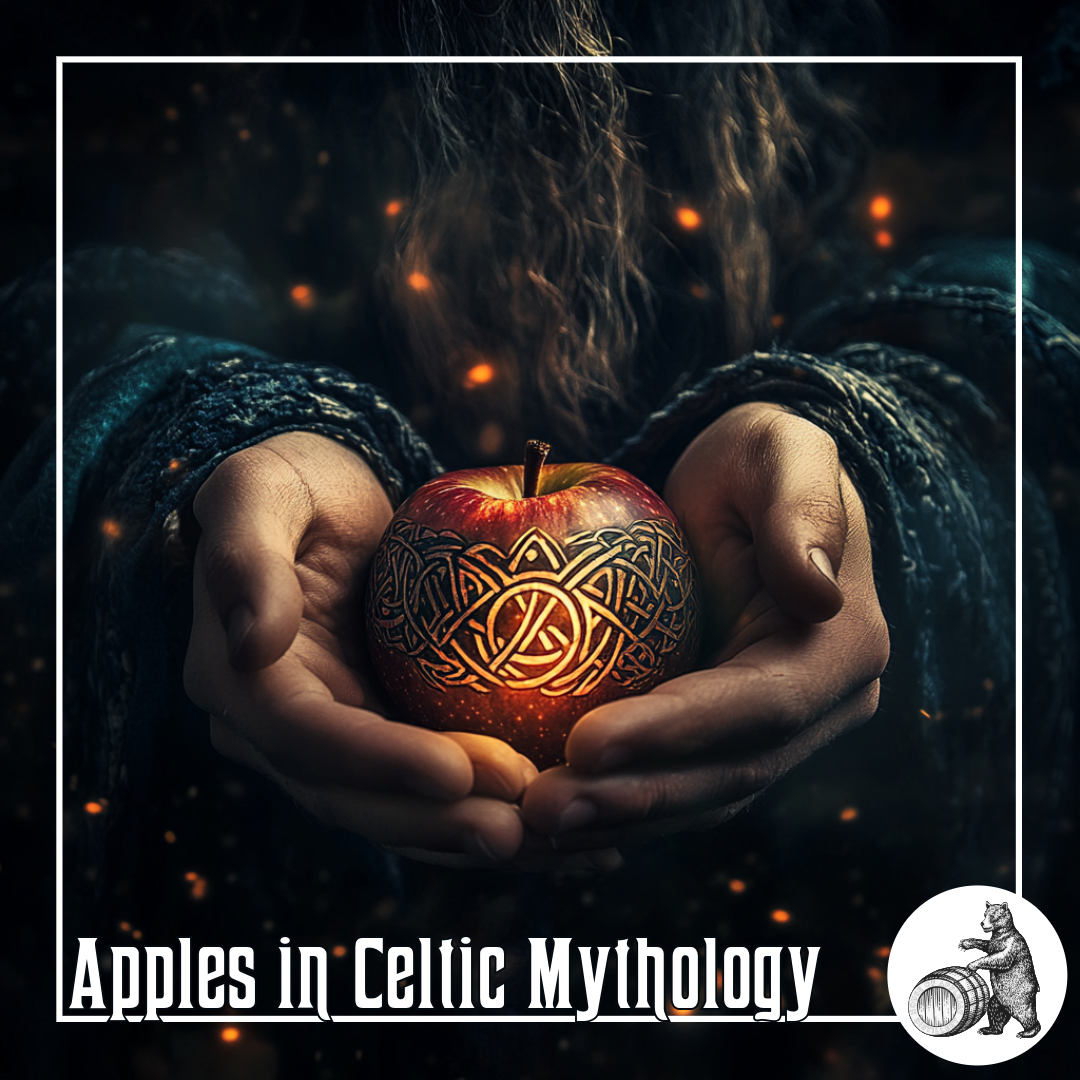The Apple in Celtic Mythology
The Symbol of Magic, Immortality, and the Otherworld
In Celtic mythology, the apple holds a place of profound significance, symbolizing much more than just a fruit—it represents immortality, wisdom, and the connection between the mortal world and the divine. The apple tree, abundant and magical, was revered by the Celts for its mystical powers, its fruit believed to be a gift from the gods. Throughout Celtic lore, apples appear as powerful symbols of life’s eternal cycle and the magical Otherworld, a place where time stands still and the boundaries of reality dissolve.
he Isle of Avalon: The “Isle of the Apple Trees”
One of the most famous references to apples in Celtic mythology is the Isle of Avalon, known as the “Isle of the Apple Trees” (Insula Pomorum). In the Arthurian legends, Avalon is the mystical paradise where King Arthur is taken after his final battle, to be healed by its magical forces. This mythical island is often depicted as a place of eternal youth, healing, and transformation—an Otherworldly realm beyond the reach of mortals. Apples in Avalon are not just sustenance; they are believed to bestow immortality and profound knowledge, making them sacred fruits in the Celtic imagination.
The association of Avalon with apples is a reflection of the apple’s broader symbolism in Celtic mythology: a bridge between the human world and the divine, a fruit that offers passage to realms of eternal life and mystery. Avalon’s name itself reinforces the sacred nature of the apple, with the “Isle of the Apple Trees” embodying the paradise that exists beyond the mortal plane.
Apples as Gifts from the Gods
In many Celtic myths, apples are regarded as divine gifts, offering those who partake in them a special connection to the gods. Apples often appear in stories of magical journeys to the Otherworld, a mystical dimension where time flows differently, and where mortals can gain knowledge or immortality. For instance, in the tale of Connla, the son of a king, a mysterious woman from the Otherworld offers him an apple that feeds him without ever diminishing. This apple not only sustains him physically but also symbolizes the eternal life and magical powers associated with the Otherworld.
Another significant figure in Celtic mythology associated with apples is Áine, the goddess of summer, fertility, and love. Known for her close connection to the harvest, Áine was linked to apple orchards, with the fruit symbolizing the ripening of life and love under the sun’s warmth. Apples, in this sense, were not only sustenance but a representation of the sacred, life-giving force that binds the natural and spiritual worlds.
The Apple Tree as a Symbol of Immortality
The apple tree itself was considered a sacred tree in Celtic belief, symbolizing longevity and immortality. Its fruit, ripening in the late summer and autumn, coincided with the Celtic festivals celebrating the harvest, such as Samhain. These festivals marked the changing of the seasons and the cycle of life, death, and rebirth. The apple tree’s role in these celebrations reinforced its connection to the cyclical nature of existence and the eternal life believed to be attainable through the Otherworld.
For the druids, the spiritual leaders of the Celts, the apple tree had a special significance. Wands made from apple tree wood were believed to hold great magical power, and the tree itself was often regarded as a gateway to the Otherworld. In this way, the apple tree became not just a symbol of immortality, but also a conduit for divine wisdom and mystical insight.
Apples and the Otherworld
The apple’s most prominent role in Celtic mythology lies in its connection to the Otherworld, a place of timeless beauty and eternal life. In stories of the Otherworld, apples often appear as the food of the gods or the fae, magical beings who dwell in this realm. These stories reflect the belief that apples held the power to transcend the limitations of mortality, offering a glimpse into the infinite mysteries of existence.
The Otherworld was not a place of death in the way we might imagine it today, but rather a realm where life continued in an idealized, magical state. Apples, as fruits of this Otherworld, were a means of crossing over, of tapping into the eternal energies that flow through both the human and divine worlds.
The apple’s place in Celtic mythology is rich with layers of symbolism and meaning. Whether representing immortality, knowledge, or the connection between the mortal world and the Otherworld, the apple was considered a sacred and powerful symbol by the Celts. It is a fruit of mystery and magic, a gift from the gods that has held its place in the stories and traditions of Celtic culture for centuries.
Applejay from Ellijay: A Modern Apple Liqueur
To the Celts, the apple was more than just food—it was a key to understanding the universe and a reminder of the eternal cycle of life, a symbol of life’s continuity and the ever-present magic that surrounds us.
Applejay from Ellijay is a modern, all-natural apple liqueur that seeks to capture the essence of the apple, blending its rich history with the flavors of today in every bottle. Whether enjoyed on the rocks or as a Frozen Apple Cocktail, Applejay reflects the apple’s rich history, interpreting apple liqueur for today’s world with a fresh, natural perspective.
The Distilling Culture
BLOG
Embark on a global journey, and you’ll find that cultures possess tales that harken back to their ancient beginnings of distillation, brewing, and winemaking.
info@houseofapplejay.com
67 Fowler St, Bldg B, East Ellijay, GA 30540

